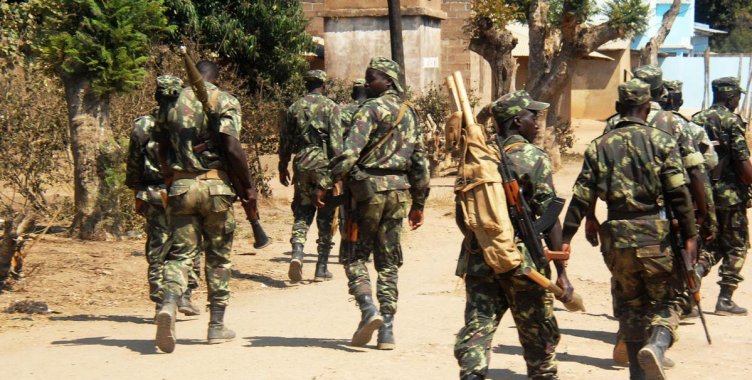According to information from the military mission (SAMIM) of the Southern African Development Community (SADC) to which Lusa had access this Tuesday, on April 29th the "farewell ceremony" of those two contingents took place at the airport of Pemba, capital of Cabo Delgado, with tributes to its members.
"You served SAMIM well, your work will remain in the hearts and minds of the people of Mozambique", declared, at the ceremony, the mission commander, Major General Patrick Dube, of the South African Armed Forces (SANDF).
SAMIM has been in Cabo Delgado since mid-2021 and, in August 2023, SADC approved the extension for another 12 months, until July 2024, providing for a progressive withdrawal plan.
The mission comprises troops from eight SADC countries, "working in collaboration with the Armed Defense Forces of Mozambique and other troops deployed to Cabo Delgado".
The Mozambican President said, on Thursday, that the ongoing departure of SAMIM takes place after "the stabilization" of that province, but that some countries will remain.
"It is public knowledge that our brothers who supported us, in this specific case from SADC, are leaving, after having reached a crucial phase of stabilization (...). Lesotho has already left, Botswana is leaving, leaving South Africa", detailed the head of state.
However, he added that "the Tanzanian force" remains in Mozambique, which cooperates "on a bilateral basis", and the Rwandan military, also outside the SAMIM mission.
The President of Mozambique did not comment, in this intervention, on the decision of the President of South Africa, who in April announced the extension until the end of the year of the South African mission in Cabo Delgado, which until now was working in the SAMIM mission, which should withdraw completely by July 14th.
The Mozambican Government spokesperson said on April 30 that the executive still does not have a "formal communication" regarding the extension of the deadline for South African Armed Forces operations in Cabo Delgado.
"Regarding the extension of the South African troops, the response remains the same, we have no record of an official communication, as was said by the sector minister [Cristóvão Chume]", declared Filimão Suaze, spokesperson for the Council of Ministers, after a meeting of the body.
South African President Cyril Ramaphosa extended the SANDF operation, with 1,495 soldiers, to combat terrorism in Cabo Delgado until December 31st of this year.
In a letter addressed to the South African Parliament, to which Lusa had access, the head of state states that the extension of that mission, under "operation Vikela", will cost 984,368,057 rand (47.8 million euros), being valid since April 16th.
"The deployed SANDF elements will continue with their responsibilities in combating acts of terrorism and extremist violence in northern Mozambique", the letter reads.
Ramaphosa explains that this extension aims to fulfill South Africa's "international obligations" to SADC in combating terrorism in the region.
A group of SANDF soldiers in the SAMIM mission, called Delta Team, began leaving Mozambique on April 13, in the withdrawal process that began at the beginning of April with the Botswana military, followed by a group from Lesotho.
The President of Mozambique stated on 18 April that Mozambicans should be responsible for the country's defense, in the face of SAMIM's departure: "We, the Mozambicans, are largely responsible for the defense of Mozambique. Our friends will help us. I have having said that we are now in a phase of training, of building resistance, of stabilizing the country after recovering from the problems".







